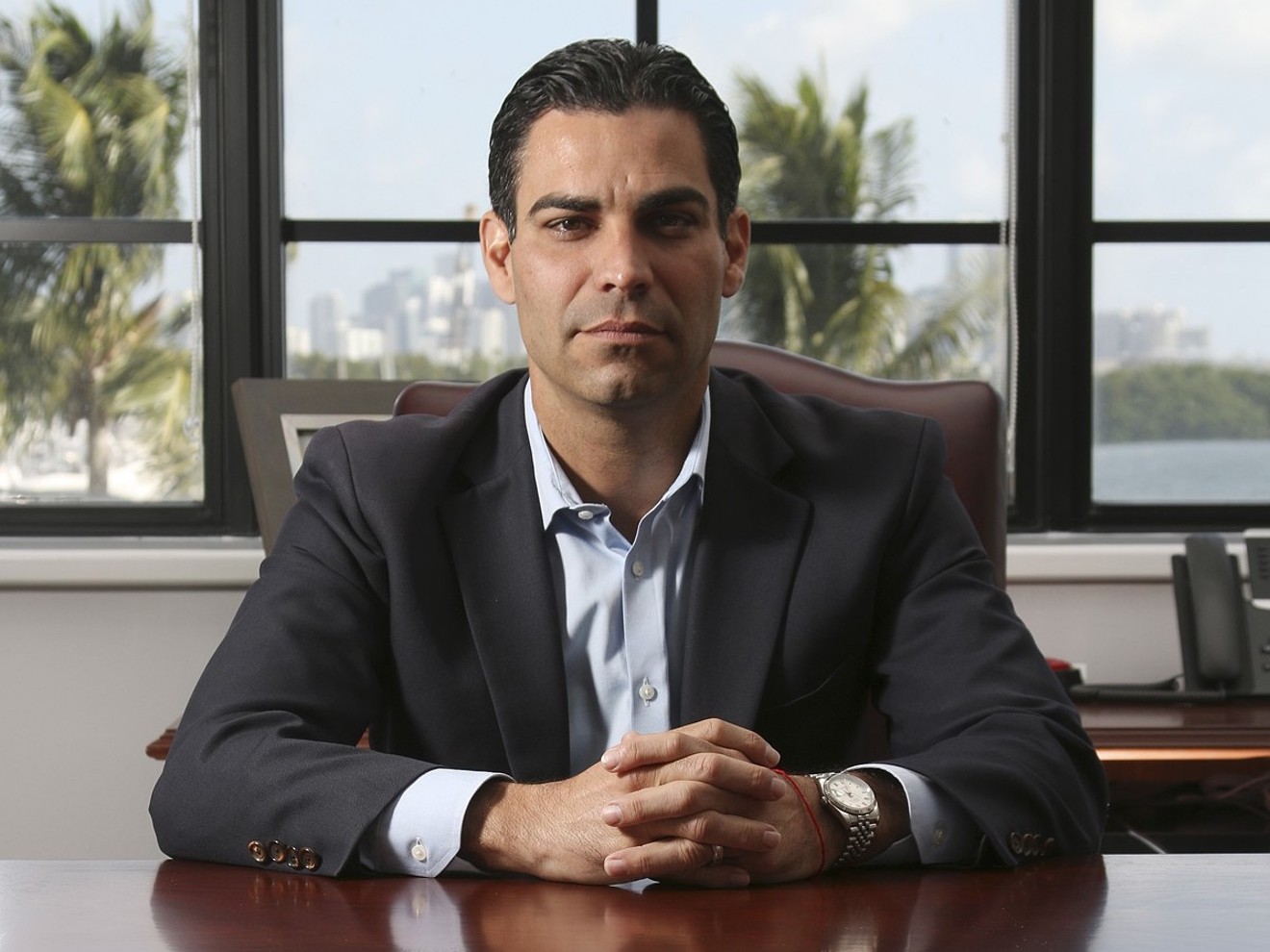Danny Suarez, a former member of Miami's independent police oversight board, provided New Times with a snippet of an October 2018 exchange he had with Mayor Suarez. Danny Suarez made mention of what he deemed the "shady parts" of the Miami Police Department. Mayor Suarez responded in Spanish by saying, "eso son inventos" — or, in English, "those are made up."
"I stopped seriously engaging him after that time. I couldn't believe the one guy I thought was the champ for Miami would say something like that," says Danny Suarez, adding that he chose to make the texts public because of Mayor Suarez's recent statements to the media. (Although the two share a surname, Danny Suarez has no relation to Mayor Suarez.)
Mayor Suarez could not be reached for comment through his communications staff. Nor did he respond to texts and calls to his personal phone number, which he gave out to protesters late last month.

A text conversation between City of Miami Mayor Francis Suarez and former Civilian Investigative Panel member Danny Suarez.
Screenshot courtesy of Danny Suarez
Danny Suarez served on the CIP from 2011 to 2016. He says that during that time, he saw the Internal Affairs department botch numerous investigations and watched as cops with histories of misconduct were permitted to remain on the force.
Current CIP member Steve Navarrete, who has been on the panel for three years now, corroborates Danny Suarez's claims, saying the CIP's recommendations to MPD often go ignored.
"There are some officers with a number of allegations against them. We make our recommendations, and most of the time the city will not follow our recommendations," Navarrete says.
When the CIP has completed its investigation into an officer, it sends a letter to MPD Chief Jorge Colina about the nature of the misconduct, along with recommendations for what the police department should do about it. According to Navarrete, the response CIP usually gets back is a scripted email.
"Sometimes it feels like one of those standard 'We've received your letter' messages," says CIP chairwoman Eileen Damaso. "Is it enough? Maybe not."
Miami's most notoriously misbehaving cop, Capt. Javier Ortiz, epitomizes that culture of inaction. The police captain, who formerly served as the union president, has had a laundry list of complaints investigated by the CIP, including accusations of breaking a woman's wrist, drawing demon faces on mugshots of black people, releasing a woman's personal information and address, and assaulting multiple civilians. To date, Ortiz has never been seriously reprimanded for the myriad complaints of misconduct.
In January, Ortiz, a white Hispanic man, was suspended with pay after claiming to be black during a city commission meeting. According to an MPD spokesperson, the internal investigation is ongoing.
Mayor Suarez has never publicly condemned Ortiz for his actions. Instead, Suarez commended Ortiz in an April 2019 commission meeting for his work that year at the Ultra Music Festival — an event Ortiz had once been banned from working after beating, choking, and tasing a festival-goer.
Some locals have accused Mayor Suarez of pandering and taking advantage of the current political moment for clout.@MiamiMayor @FrancisSuarez pic.twitter.com/Uo9JDormHw
— Billy Corben (@BillyCorben) May 31, 2020
"He's receptive to everything in that he wants to be everybody's friend. But it has never been politically expedient for him to care about these issues," says film director Billy Corben, co-founder of the Miami-based studio Rakontur and a vocal local civic watchdog. "He's exploiting these tragedies for his own political gain. Repulsive."
Corben points to a recent television interview in which Mayor Suarez promised to "implement the most progressive policies that are needed to make sure that we don't have any police officer in our department who's racist, and if they are, that they're gone."
Corben says that vague commitment is hardly sufficient to address the real issues inside Miami's police department.
"What a bullshit thing to say. Bullshit platitudes like 'racism is bad.' So brave, Francis," Corben says.
The City of Miami runs under a "weak mayor" system, in which the mayor cedes the majority of political power to the city commission. Unlike Miami-Dade County's "strong mayor" system, Mayor Suarez is not the chief executive officer and cannot enact legislative change.
Still, beyond a few TV appearances applauding peaceful protesters and his participation in a memorial event for George Floyd and Arthur McDuffie, who was beaten to death by Miami police in 1979, some say Mayor Suarez is being performative after a lack of real action or activism against police violence since he was elected as a commissioner in 2009.
"Suarez is a photo opportunist," says Danny Suarez. "He doesn't believe this corruption exists."












